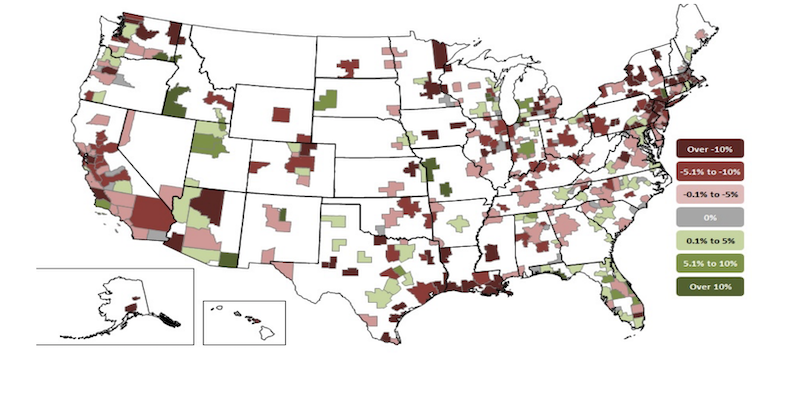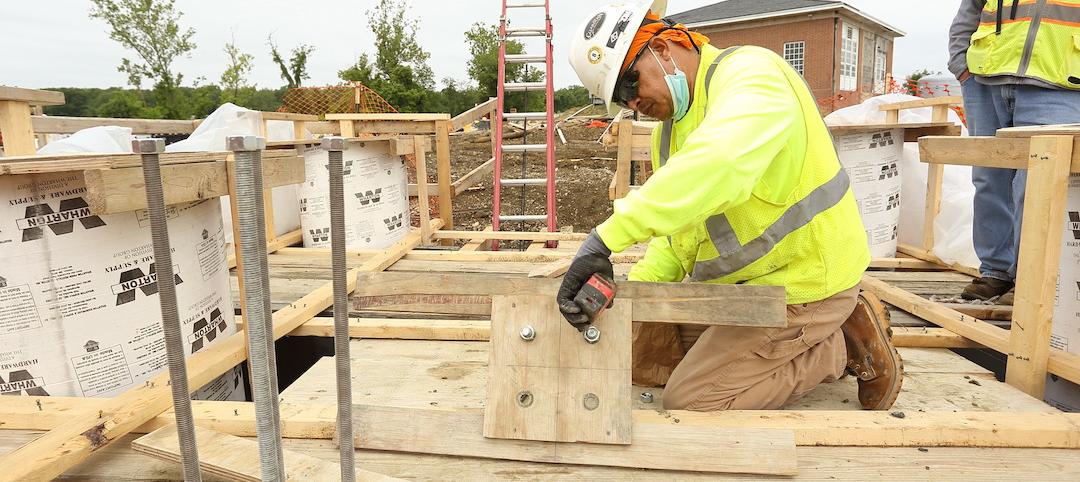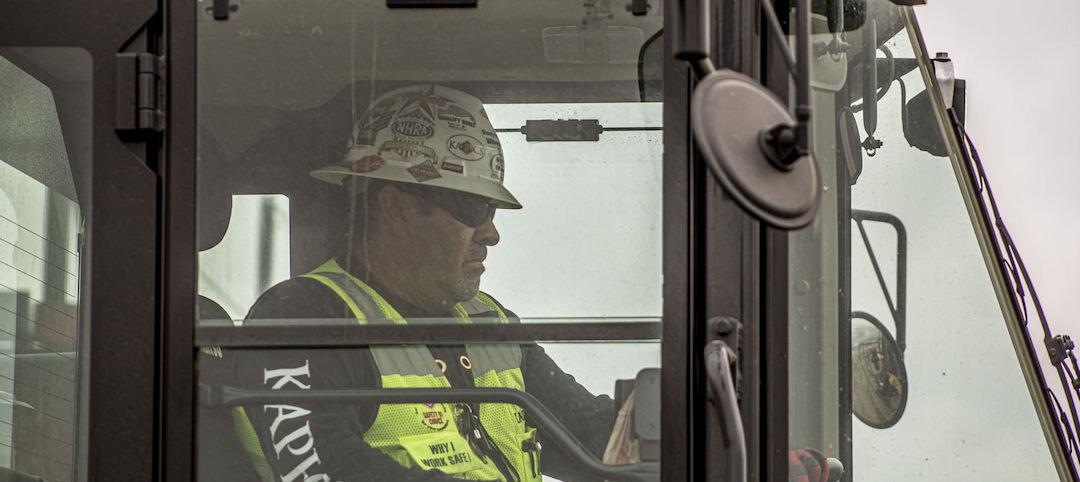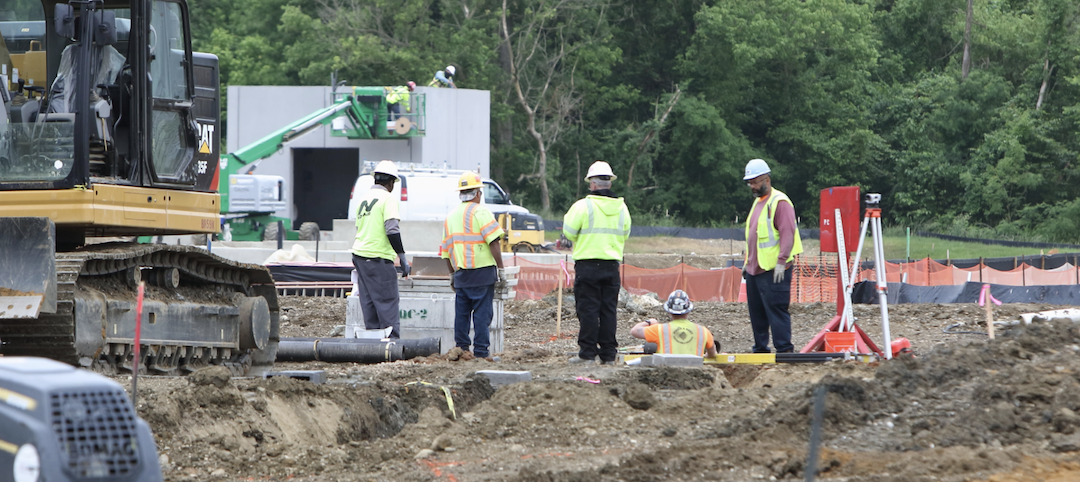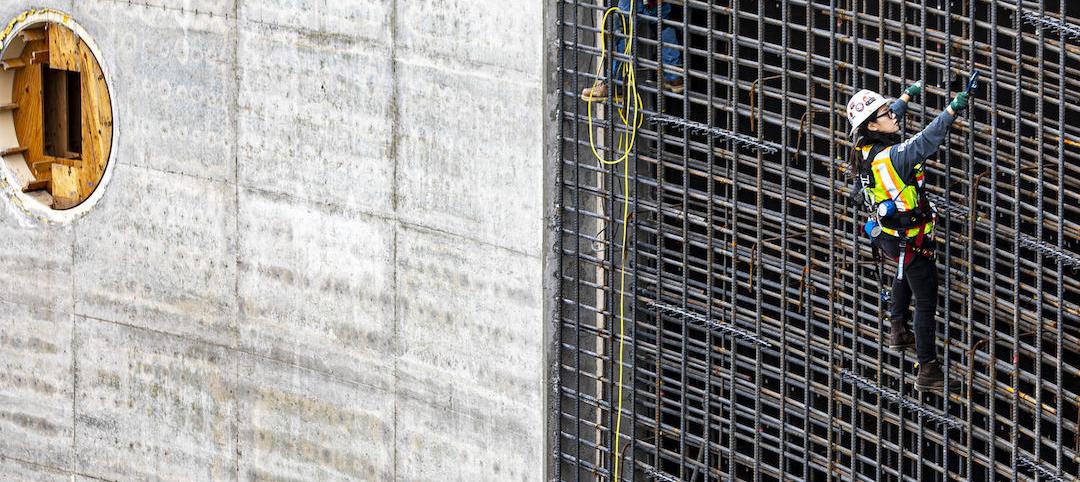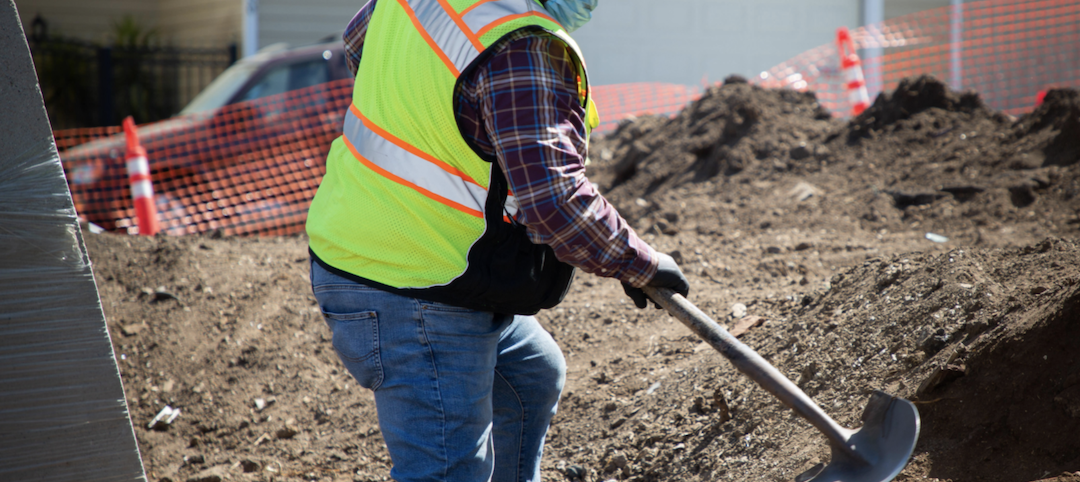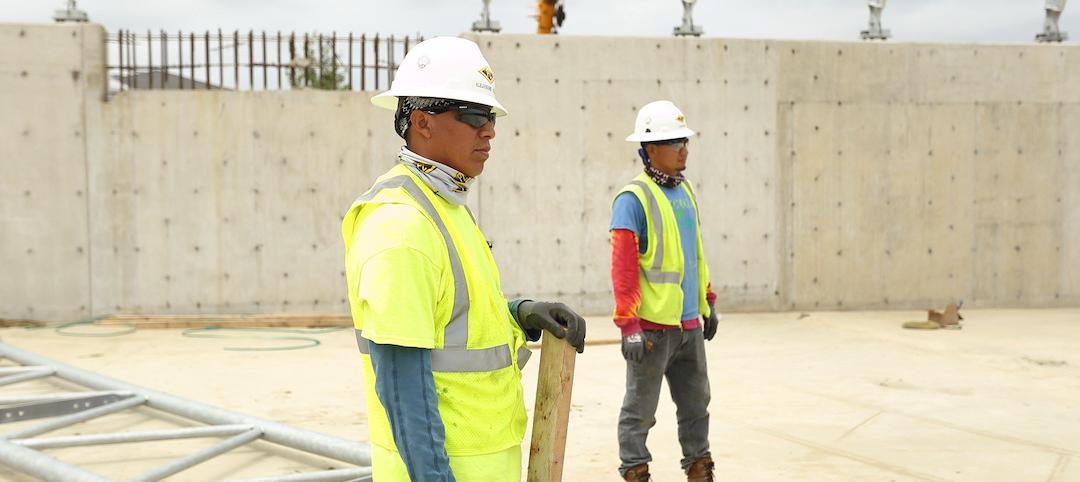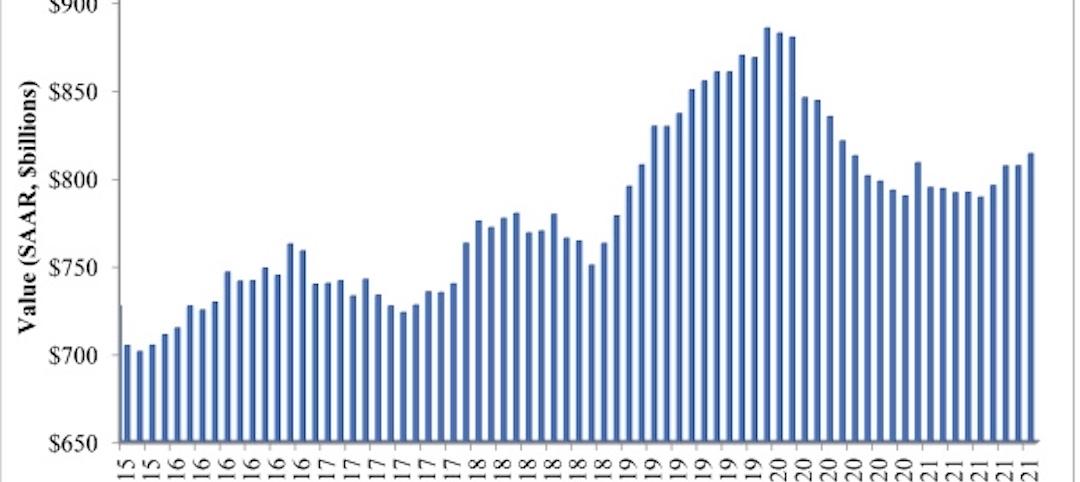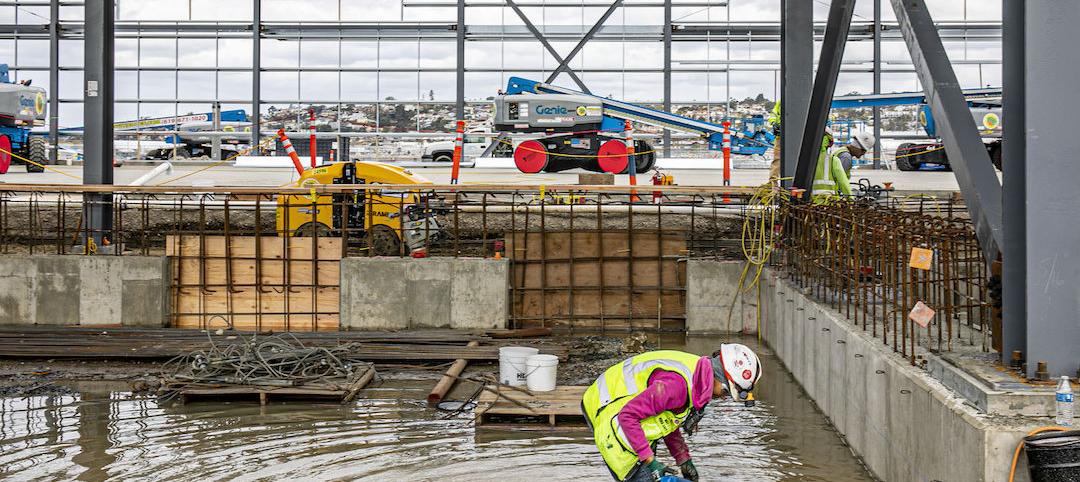Construction employment decreased in 241, or 67%, out of 358 metro areas between August 2019 and last month, according to an analysis of new government data that the Associated General Contractors of America released today. Association officials urged Congress to pass new coronavirus relief measures before leaving town.
“Although residential construction is picking up in many areas, public and nonresidential construction are shrinking,” said Ken Simonson, the association’s chief economist. “Project cancellations are spreading, and fewer new projects are starting up. That combination makes further employment declines inevitable unless the federal government steps up support for infrastructure.”
Simonson noted that construction employment was stagnant in 29 metro areas and increased in only 88 areas (25%) over the past 12 months. Nineteen metros had all-time lows for August construction employment, while 33 areas had record highs for August, in data going back to 1990 for most areas.
Houston-The Woodlands-Sugar Land, Texas lost the most construction jobs over 12 months (-22,800 jobs, -10%), followed by New York City (-21,700 jobs, -13 percent). Brockton-Bridgewater-Easton, Mass. had the largest percentage decline (-38 percent, -2,200 jobs), followed by Johnstown, Pa. (-34 percent, -1,000 jobs).
Indianapolis-Carmel-Anderson, Ind. added the most construction jobs from August 2019 to August 2020 (4,800 jobs, 9%), followed by Baltimore-Columbia-Towson, Md. (4,300 jobs, 5%). Niles-Benton Harbor, Mich. had the highest percentage increase (16%, 400 jobs), followed by Fond du Lac, Wisc. (15%, 500 jobs) and Walla Walla, Wash. (15%, 100 jobs).
Association officials urged Congressional leaders to not leave town until after the election without passing much-needed new coronavirus relief measures. In particular, the construction officials called on Congress to pass new liability protections for firms that are taking steps to protect workers from the coronavirus. They also urged Congressional leaders to boost investments in infrastructure and pass measures designed to preserve payrolls.
“The coronavirus and efforts to mitigate its spread have left our economy deeply wounded, depressing demand for many types of commercial construction projects,” said Stephen E. Sandherr, the association’s chief executive officer. “Congress can end the downward economic slide and help create needed new construction jobs by passing measures to boost demand and protect honest employers.”
View the metro employment 12-month data, rankings, top 10, and map.
Related Stories
Market Data | Jan 6, 2022
A new survey offers a snapshot of New York’s construction market
Anchin’s poll of 20 AEC clients finds a “growing optimism,” but also multiple pressure points.
Market Data | Jan 3, 2022
Construction spending in November increases from October and year ago
Construction spending in November totaled $1.63 trillion at a seasonally adjusted annual rate.
Market Data | Dec 22, 2021
Two out of three metro areas add construction jobs from November 2020 to November 2021
Construction employment increased in 237 or 66% of 358 metro areas over the last 12 months.
Market Data | Dec 17, 2021
Construction jobs exceed pre-pandemic level in 18 states and D.C.
Firms struggle to find qualified workers to keep up with demand.
Market Data | Dec 15, 2021
Widespread steep increases in materials costs in November outrun prices for construction projects
Construction officials say efforts to address supply chain challenges have been insufficient.
Market Data | Dec 15, 2021
Demand for design services continues to grow
Changing conditions could be on the horizon.
Market Data | Dec 5, 2021
Construction adds 31,000 jobs in November
Gains were in all segments, but the industry will need even more workers as demand accelerates.
Market Data | Dec 5, 2021
Construction spending rebounds in October
Growth in most public and private nonresidential types is offsetting the decline in residential work.
Market Data | Dec 5, 2021
Nonresidential construction spending increases nearly 1% in October
Spending was up on a monthly basis in 13 of the 16 nonresidential subcategories.
Market Data | Nov 30, 2021
Two-thirds of metro areas add construction jobs from October 2020 to October 2021
The pandemic and supply chain woes may limit gains.


